Publications
Articles, publications, books, tools and multimedia features from the U.S. Institute of Peace provide the latest news, analysis, research findings, practitioner guides and reports, all related to the conflict zones and issues that are at the center of the Institute’s work to prevent and reduce violent conflict.
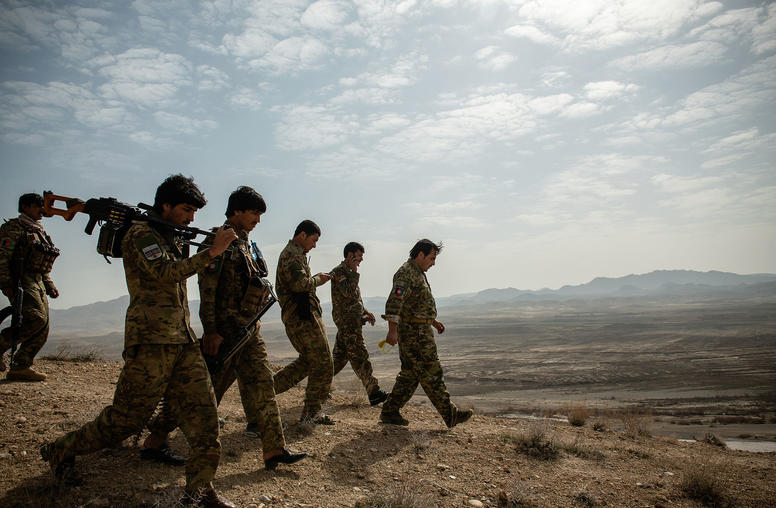
Four Lessons for Security Sector Reform in Afghanistan
As Afghan peace talks in Doha move forward, a vital component to the success of any peace deal will be how Afghanistan’s security sector can reform to sustain peace after more than 40 years of violence, and how the international community can best assist.
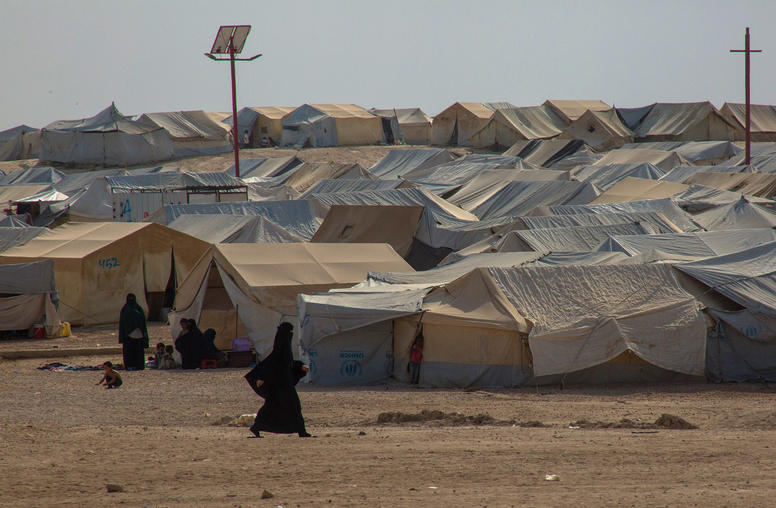
Can Syrians Who Left ISIS Be Reintegrated into Their Communities?
More than a year since the territorial defeat of ISIS, the region is still reeling in the wake of the self-styled caliphate’s destruction. Kurdish authorities operate two dozen detention facilities in northeast Syria holding thousands of former ISIS fighters. On October 5, Kurdish authorities in charge of al-Hol said they would free the 24,000 Syrians in the camp, where conditions have become increasingly unsustainable. USIP’s Mona Yacoubian, Chris Bosley, and Leanne Erdberg Steadman look at what led to the decision to release these Syrians and the challenges ahead for reintegrating them into their communities.
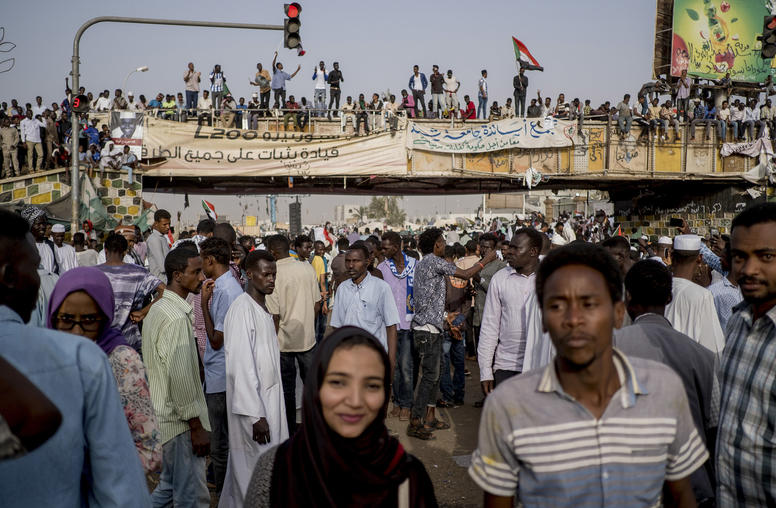
Africa is the next global influencer. That’s an opportunity.
In a COVID-altered landscape of global security threats, economic opportunities and strategic change, Africa is seizing center stage. Africans form the world’s fastest-growing population and national economies. Violent crises, democracy movements, extremist threats, international investments, human displacement and strategic opportunities all are rising. The coronavirus pandemic underscores both Africa’s risks to global stability from fragile states—and the overlooked potential of a continent now outperforming wealthier regions in containing the public health crisis. COVID is the latest reminder that “Africa’s deepening vulnerabilities and its rising capacities will shape global realities whether we prepare for that or not,” according to scholar Joseph Sany.
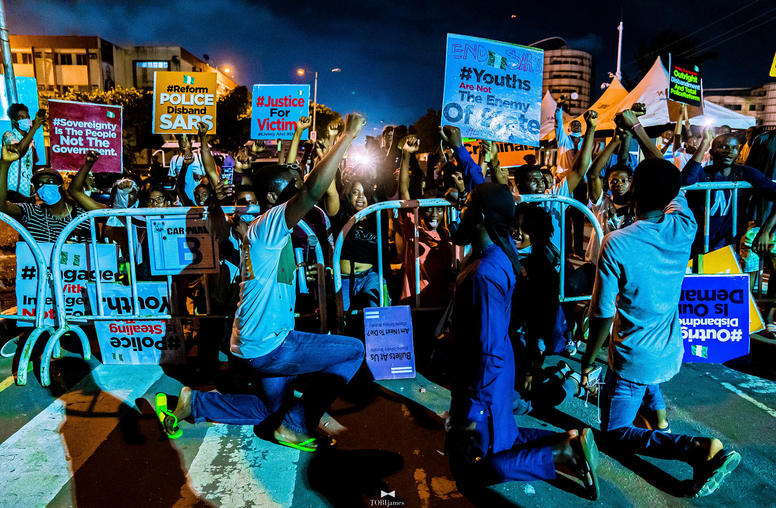
Protests Test Nigeria’s Democracy and its Leadership in Africa
Nigeria’s protests against police brutality already were the largest in the country’s history before security forces opened fire on a crowd in Lagos on October 20. The protest and bloodshed have only heightened the need for the government in Africa’s most populous country to end the pattern of violence by security forces against civilians. Leaders must finally acknowledge that this brutality has fueled violent extremism. How the Nigerian government will respond to citizens’ insistent demand for accountable governance will influence similar struggles—for democracy, accountability, nonviolence and stability—across much of Africa.
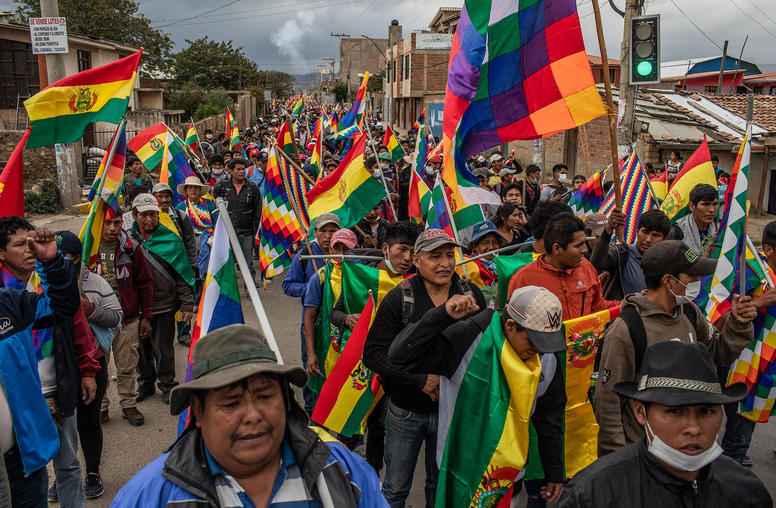
After a Year of Turmoil, Bolivia’s Election Offers Chance to Reduce Divides
Bolivians took part on Sunday in one of the country’s most decisive and historic general elections, in which the former governing party Movement Toward Socialism (MAS) and its candidate Luis Arce garnered a resounding victory. The vote culminated nearly 12 months of instability since elections in October 2019 led to allegations of fraud, followed by massive street protests and the departure of former President Evo Morales after nearly 14 years in power. Bolivia has not experienced a peaceful transition of power since 2002, but a window of opportunity has opened for the ethnically diverse Andean nation to emerge from the paralyzing polarization that has plagued it over the past years.
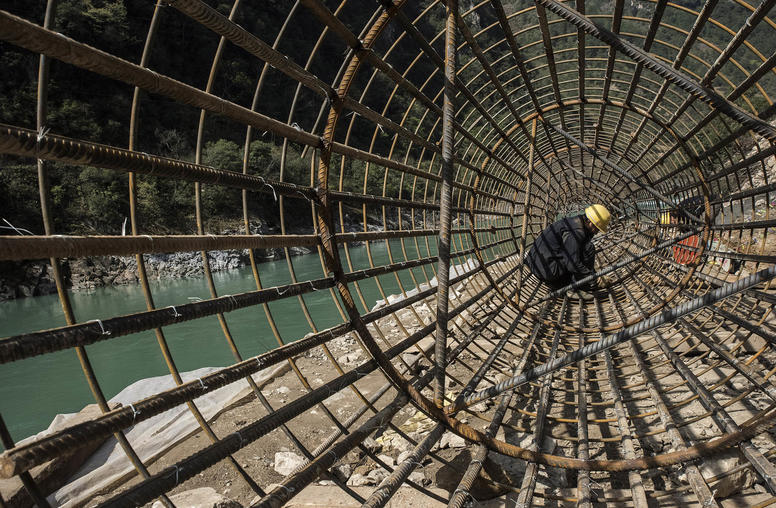
Is China Getting Serious About Crime on the ‘Belt and Road’?
As China’s leading foreign policy project, its Belt and Road Initiative (BRI) should be easy to understand. Yet since its inception in 2013, the BRI has remained remarkably opaque. The government publishes no criteria for approving BRI projects or comprehensive lists of authorized ones. Consequently, a range of Chinese investors—including some linked to organized crime—claim an association with the signature program of China’s leader, Xi Jinping. In host countries, this free-riding identification can threaten governance and stability, while further damaging the international community’s ability to check the spread of related criminal activity.
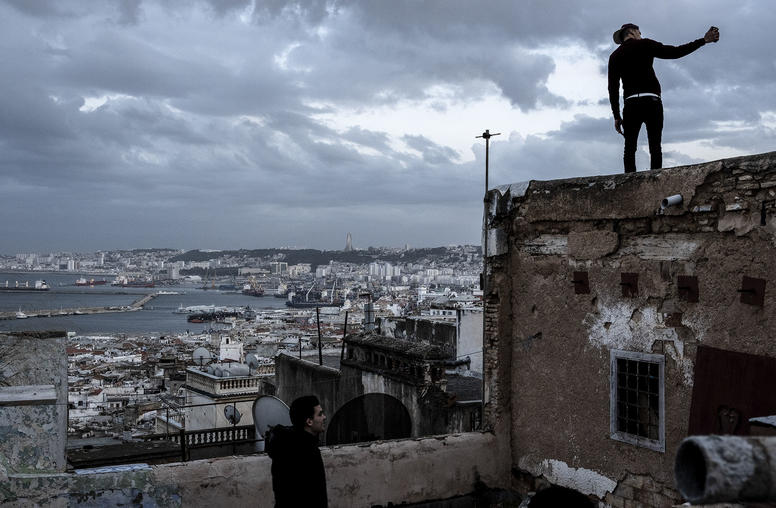
Could Algeria’s Referendum Lead to Democratic Progress or Uphold Status Quo?
Algerians took to the streets in February 2019 to protest the re-election bid of longtime authoritarian president Abdelaziz Bouteflika. Those protests—which came to be known as the Hirak movement and resulted in Bouteflika’s resignation in April of that year—evolved quickly to calls for a fundamental overhaul of the country’s political system. Few real changes have been made since. This Sunday, Algeria will hold a referendum on constitutional amendments to ostensibly bolster the country’s democracy. But, the Hirak says the constitutional changes do not go far enough. USIP’S Tom Hill looks at why the constitutional amendments have stirred tension with the opposition, the movement’s struggles to coalesce behind specific demands, and the role of Algeria’s military and floundering economy in the transition.
Internet Freedom and Social Media
Following the massive protests in Egypt, Tunisia and elsewhere in the Middle East, Secretary of State Hillary Rodham Clinton spoke about the importance of Internet freedom and social media. USIP’s Sheldon Himelfarb examines how – and how much – the Internet can impact politics and be a force for freedom.
Event Wrap: Making Peace in Afghanistan
More than a year into the “surge” of American and international military forces in Afghanistan, there are only mixed results on the ground, say experts. And that, they say, begs the question – who is helping to build the political process on which a final, peaceful resolution can be reached?
Navigating Tricky Transitions in Iraq, Afghanistan
The last American troops will leave Iraq this year, and the first troops will leave Afghanistan starting this summer. That means the civilian side of the U.S. government must step up to assume a greater responsibility in the void the military leaves behind. But is the U.S. government ready to take on this bigger role as the military exits? The answer is: it's far from clear.